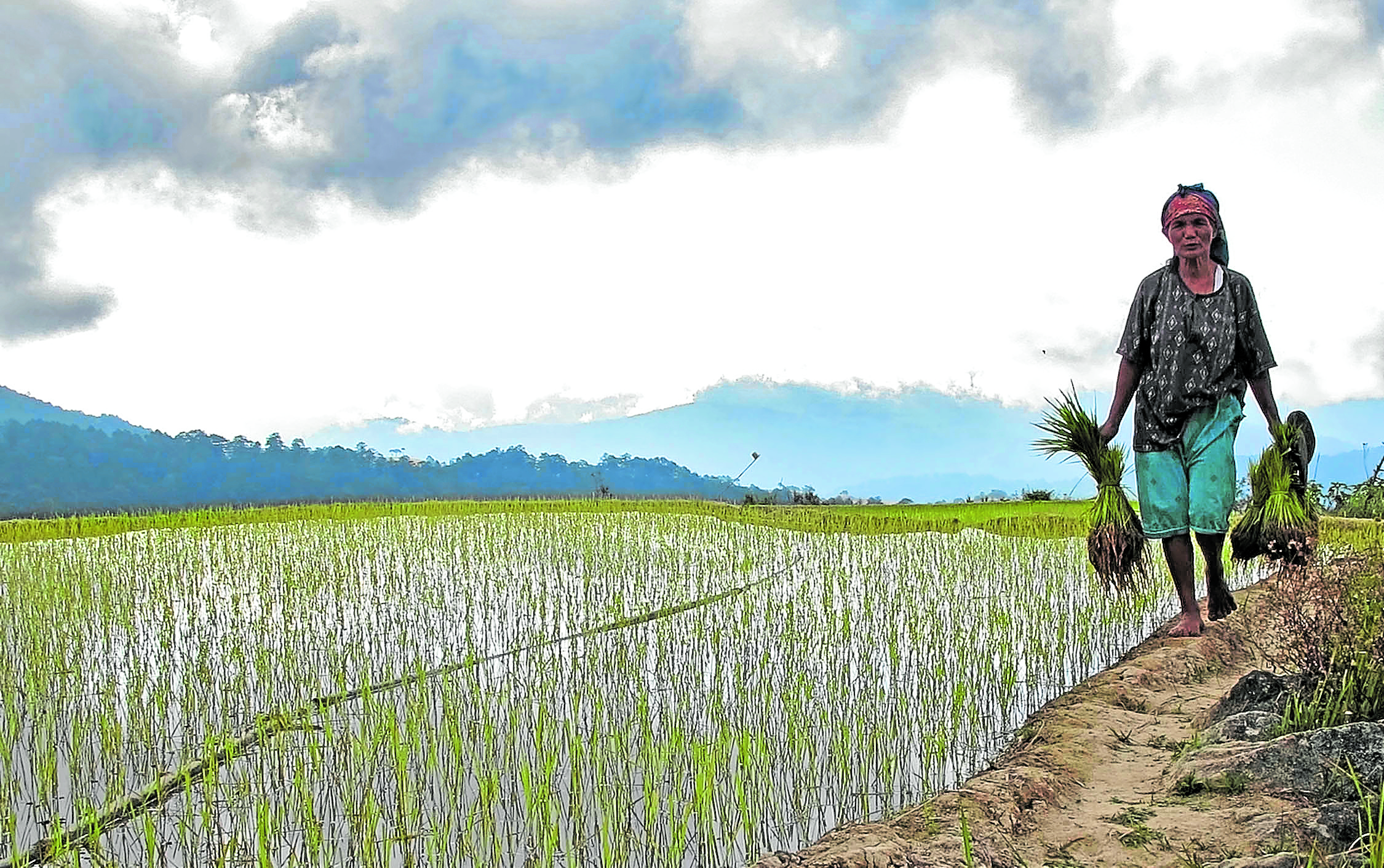P33B eyed for Cordillera economic recovery
BAGUIO CITY—It may take at least P33.4 billion for Cordillera towns and cities to adapt economically and socially to the health requirements of a country reeling from the coronavirus pandemic, according to a recovery plan disclosed here on Wednesday.
Covering a transition period until 2022, some of the proposed stimulus fund will be used to rebuild basic facilities such as schools to conform to the demand for social distancing.
The stimulus plan was outlined during a meeting of the Cordillera Inter-Agency Task Force and the Regional Disaster Risk Reduction and Management Council to address the region’s estimated P18.6-billion losses when Luzon was locked down in March to stave off the spread of the new coronavirus disease (COVID-19).
The region’s infrastructure and social services agencies also plan to build 1,176 more toilets and washing facilities in Benguet, Ifugao, Mountain Province, Apayao, Abra and Kalinga.

HELPING FARMERS The Luzon lockdown aimed at stopping the spread of the coronavirus has taken its toll on the Cordillera’s agriculture sector, prompting local officials to work on a recovery plan for the region’s farmers. —EV ESPIRITU
Lost opportunities
Under the plan, farmers will be the chief suppliers of goods used for government feeding programs and relief operations. Extensive training programs will also be developed for new livelihood projects and business continuity techniques.
Baguio suffered the economic impact of the pandemic in February when it canceled crowd-drawing activities, such as the annual Panagbenga (Baguio Flower Festival).
Article continues after this advertisementThe city had to absorb P1.4 billion in lost opportunities when most of its tourism-oriented industries closed and activities were canceled during the Holy Week and summer breaks.
Article continues after this advertisementAccording to the Cordillera recovery plan, the Luzon lockdown may have a 4.83-percent impact on the gross regional domestic product or GRDP, which measures the values of goods and services in the region.
The quarantine also reflected a 3.2-percent increase in the prices of vegetables, fruits and fish from January to April.
Food generators
But economic planners said the restored Cordillera economy should not be achieved at the expense of public health. All Cordillera communities are food generators so the plan would focus on strategies that would help farmers sell their produce using the latest technology.
To decongest public markets, the plan proposed to tap villages as farm produce outlets. During the enhanced quarantine in Baguio, for example, “sari-sari” (variety) stores and other small enterprises were expanded to retail farm products. —VINCENT CABREZA